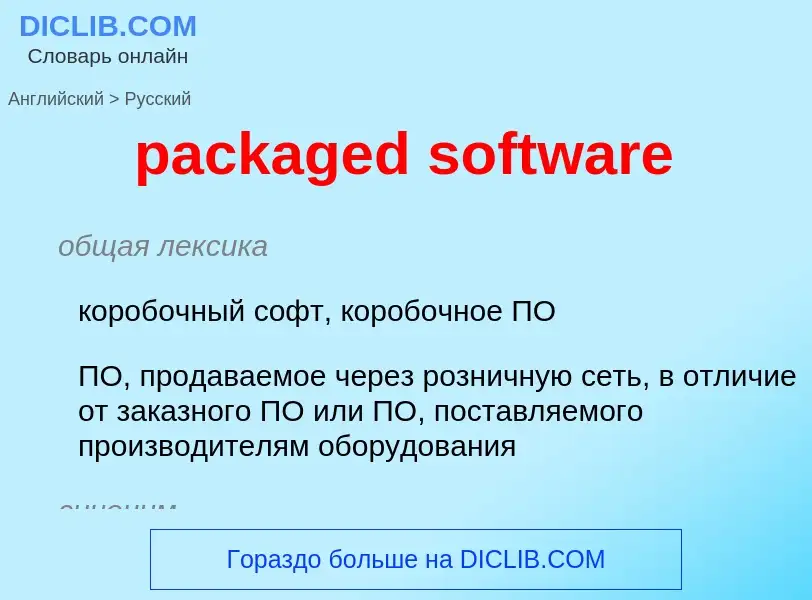Tradução e análise de palavras por inteligência artificial ChatGPT
Nesta página você pode obter uma análise detalhada de uma palavra ou frase, produzida usando a melhor tecnologia de inteligência artificial até o momento:
- como a palavra é usada
- frequência de uso
- é usado com mais frequência na fala oral ou escrita
- opções de tradução de palavras
- exemplos de uso (várias frases com tradução)
- etimologia
packaged software - tradução para Inglês
общая лексика
коробочный софт, коробочное ПО
ПО, продаваемое через розничную сеть, в отличие от заказного ПО или ПО, поставляемого производителям оборудования
синоним
Смотрите также
общая лексика
комплекс програмный
Definição
Wikipédia
Software cracking (known as "breaking" mostly in the 1980s) is an act of removing copy protection from a software. Copy protection can be removed by applying a specific crack. A crack would refer to any tool to enable breaking into a computer network or a software application. Examples of cracks are: applying a patch or by creating reverse-engineered serial number generators known as keygens, thus bypassing software registration and payments or converting a trial/demo version of the software into fully-functioning software without paying for it. Software cracking contributes to the rise of online piracy where pirated software is distributed to end-users through filesharing sites like BitTorrent, One click hosting (OCH), or via Usenet downloads, or by downloading bundles of the original software with cracks or keygens.
Some of these tools are called keygen, patch, loader, or no-disc crack. A keygen is a handmade product serial number generator that often offers the ability to generate working serial numbers in your own name. A patch is a small computer program that modifies the machine code of another program. This has the advantage for a cracker to not include a large executable in a release when only a few bytes are changed. A loader modifies the startup flow of a program and does not remove the protection but circumvents it. A well-known example of a loader is a trainer used to cheat in games. Fairlight pointed out in one of their .nfo files that these type of cracks are not allowed for warez scene game releases. A nukewar has shown that the protection may not kick in at any point for it to be a valid crack.
Software cracking is closely related to reverse engineering because the process of attacking a copy protection technology, is similar to the process of reverse engineering. The distribution of cracked copies is illegal in most countries. There have been lawsuits over cracking software. It might be legal to use cracked software in certain circumstances. Educational resources for reverse engineering and software cracking are, however, legal and available in the form of Crackme programs.

